Libido and Dihydrotestosterone
Let's start with a reminder that libido is not directly controlled by testosterone but rather by the hormone into which testosterone converts — dihydrotestosterone (DHT).
However, if you think that solving libido issues is as simple as ensuring a high level of DHT with anabolic steroids, which are derivatives of this hormone, you are mistaken.
We have four substances that can easily provide you with a high level of dihydrotestosterone - these are drostanolone ("Masteron"), methenolone ("Primobolan"), stanozolol, and oxandrolone. However, none of them can increase libido.
Among the derivatives of DHT, there is only one substance that can truly increase sexual desire — it is mesterolone, known as "Proviron."
Actually, to increase libido, only the DHT that the body gets from testosterone and mesterolone is suitable. In other words, do we still have to increase testosterone levels in any case? Don't rush; it's not that simple.
Free Testosterone
A high level of total testosterone does not always mean high libido, and it doesn't make sense to rely on it. The level of free testosterone is essential.
Because only free testosterone can participate in conversion reactions, including dihydrotestosterone. If there is not enough free testosterone, the level of dihydrotestosterone will also be low.
But here's the interesting part: too high a level of free testosterone is also very bad. In this case, libido can significantly decrease — I will explain why.
All because testosterone can only be transported in a bound state. A high level of free testosterone means that practically all of this hormone is somewhere where it cannot participate in any reaction. Most likely, the blood will simply deliver it to the liver, where it will be "utilized."
With an excess of free testosterone in the blood, not only libido suffers: the risk of atherosclerosis increases, insulin resistance rises, and apathy or even spontaneous mood swings may occur.
The ideal amount of free testosterone is considered to be 1-2% of the total. I would, however, recommend aiming for slightly different ranges - 1.5-2.5%.
By the way, with age, the level of total testosterone may not decrease very much, but the level of free testosterone will definitely decrease noticeably.
Finally, it is necessary to mention what binds testosterone with two substances — sex hormone-binding globulin (SHBG) and albumin. We will be interested only in the first one — only it can transport testosterone over significant distances.
Sex Hormone-Binding Globulin (SHBG)
If you want to lower the level of SHBG and increase the level of free testosterone, it is quite easy, but to raise and, accordingly, reduce the amount of free testosterone in the blood is very, very difficult.
The general rule is as follows: androgens reduce the level of SHBG, and estrogens increase it. In other words, any derivative of DHT (they do not convert to estradiol and even have anti-estrogenic activity) can significantly increase the level of free testosterone in the blood. Sometimes — even to completely unacceptable values.
A notable substance that can lower the level of SHBG is ostarine — it is a drug from the group of SARMs. It suppresses the synthesis, secretion, and activity of sex hormone-binding globulin, insulin, growth hormone, and IGF-1
Corticosteroids, for example, dexamethasone, also reduce the level of SHBG.
As I mentioned before, increasing the level of SHBG is a highly challenging task, but it can be addressed. To achieve this, you need to:
- at least slightly reduce prolactin levels;
- reduce your regular caloric intake by half twice a week;
- consume more vegetables and fruits, use olive oil;
- take metformin (1000-1500 mg per day);
- drink coffee daily or consume caffeine;
- periodically engage in intense workouts — pushing the limits of overtraining (an ideal method is training to "failure").
Also, increasing the level of estradiol will help, and antiestrogens come to the rescue here. But not all of them, only representatives of the SERMs group — such as tamoxifen or clomiphene, for example.
The point here is that these substances can only block estrogen receptors, preventing the hormone from performing its function.
However, the body does not stand idle and reacts to such blocking by increasing the production of estradiol, so after discontinuing the use of tamoxifen and clomiphene, the hormone level will be higher than before.
Biologically Active Supplements and Pharmacology for Libido Enhancement
Even with a fairly high or low level of free testosterone, you can try to increase libido. For this, "enhancers" and something else are usually used.
In this case, we will talk about substances that enhance the ability of testosterone to convert into dihydrotestosterone.
Tribulus
Actually, there are only two typical "enhancers": among dietary supplements, it is slim Tribulus, better known as Tribulus terrestris, and among anabolic steroids — turinabol.
However, expecting a guaranteed increase in libido from either the first or the second is not worth it, but you can give it a try.
Icariin and Longjack
On the other hand, substances such as Horny Goat (icariin, especially in combination with Peruvian maca) and Tongkat Ali (longjack), while acting a bit differently, can more reliably increase libido.
Bremelanotide
Don't forget about the peptide drug PT-141 (bremelanotide) — it is most suitable for cases where you cannot mentally prepare for sexual relations.
Fenugreek
Similarly, but less effectively, fenugreek (fenugreek, hay fenugreek) works.
In one study, it was found that the use of fenugreek contributed to the improvement of sexual function, including an increase in the number of morning erections and the frequency of sexual activity.
"Anabolics" and Libido
Now let's talk about how you can increase testosterone levels using anabolic steroids. However, each of them, with rare exceptions, suppresses the body's own testosterone production.
However, not all of them exhibit androgenic activity characteristic of dihydrotestosterone (DHT).
Let's consider a "classic" example — turinabol. It even has the nickname "sex drug" — meaning a substance that sets the mood for sexual relations.
Such a nickname is indeed justified: we have already talked about how "turiс" activates the transformation of testosterone into DHT.
But imagine a situation where you only take turinabol. At first, everything will be fine: your own testosterone will continue to be produced, DHT levels will rise, and libido will increase with it.
But over time, your own testosterone will become less and less — turinabol quite strongly suppresses its production.
And "turiс" does not possess androgenic activity at all, so your libido will decrease until it disappears completely. The same is true, for example, for boldenone.
Well, nandrolone and its derivatives are a separate case: they not only suppress the production of your own testosterone when used "solo" but also significantly increase levels of estradiol and progesterone — which we will discuss in the next paragraph.
So, to hope for an increase in libido during a "cycle," it is worth relying on drugs with androgenic activity — primarily testosterone.
About Levels of Some Hormones, Which Can Affect Libido
- Too low or too high levels of estradiol.
- Too low or too high levels of prolactin.
- Elevated levels of progesterone.
- Constantly elevated cortisol levels.
You may notice that in the first two cases, I mentioned not only the excess of estradiol or prolactin above the upper limit of the norm — too low levels of these hormones can also negatively impact libido. We remember this from the conversation about free testosterone.
So, it is essential not to allow a significant decrease in estradiol and prolactin levels, as this will lead to a reduction in libido and a significant deterioration in mood.
With estradiol, everything is complicated — it is crucial to balance its level with testosterone. Remember that estrogen can increase SHBG levels in the blood, while testosterone decreases it.
To maintain balance, testosterone and estradiol should be in the blood in a ratio of 100:1 to 450:1. Ideally, this ratio should be between 250:1 and 350:1. Deviation from these limits may indicate potential problems.
Progesterone, in turn, increases in humans not so often, but there are conditions where avoiding an increase is not possible. Progesterone can easily nullify your libido.
Cortisol
Most anabolic steroids are antagonists of cortisol receptors, and their use can lead to a stable increase in the level of this main catabolic hormone.
During a "cycle," such an increase will likely be unnoticed (although variations are possible), but during the recovery period, it can significantly affect various aspects of life, including libido.
Also, cortisol levels are influenced by:
- constant fatigue from the training process (this can be not only overtraining but also regular fatigue, which can also affect sexual desire)
- constant stress — almost the main cause of low libido in men in the modern world
You can control cortisol levels with pharmaceuticals, including anabolic steroids and supplements. However, this may not help — either way, until you eliminate the cause of stress and start recovering normally.
Other Factors, Negatively Affecting Libido
Some factors can negatively affect libido — even with high levels of testosterone and/or dihydrotestosterone:
- Too low or too high ambient temperature
- problems with the cardiovascular system — in particular, circulatory disorders
- psychological problems, depression
- metabolic syndrome and diabetes
Here, everything is more or less clear. I would like to add that in these cases, it is primarily the erection that suffers rather than libido, and it is strongly linked to sexual desire.
Pharmacological Preparations
Finally, about medications: libido can be negatively affected by the use of 5-alpha-reductase inhibitors (ketoconazole, finasteride), beta-adrenergic blockers, spironolactone ("Verospiron"), chemotherapy drugs, some antidepressants, opioids (including morphine), and some reflux medications.
Conclusion
The last paragraph of the article is for those who do not like to read for a long time and are looking for practical recommendations only. I am going to provide them below.
- Pay attention to what you are taking: be sure to include drugs with androgenic activity in your course. Also, try to exclude medications that negatively affect libido whenever possible.
- Monitor free testosterone levels carefully and remember that both too low and too high levels are equally bad. If free testosterone goes beyond the allowed limits, strive to return it there as quickly as possible.
- Monitor estradiol and prolactin levels — these two hormones can also provoke a decrease in libido.
- Try your best to avoid an increase in progesterone levels.
- Try to avoid stress as much as possible; if you feel constant fatigue after workouts and even a worsening mood, take at least a week off.
- In general: pay close attention to your health!
- And be sure to consider supplements such as Tongkat Ali and Horny Goat (especially in combination with maca root) — they can help even in quite challenging cases.
Men's libido is such an unstable "substance." It can disappear even when you take remedies that seemingly should elevate it to the skies.
I hope the provided information helps you overcome all difficulties and remain "combat-ready" despite temporary problems.

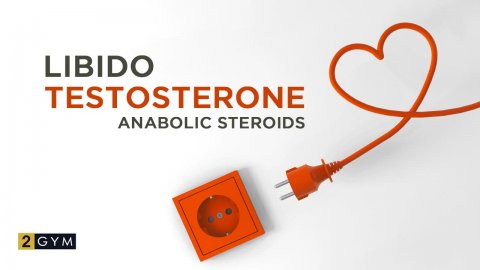
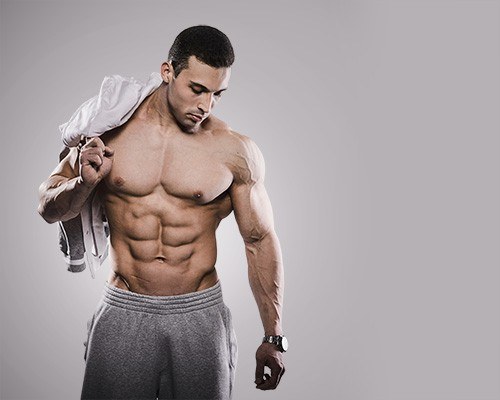








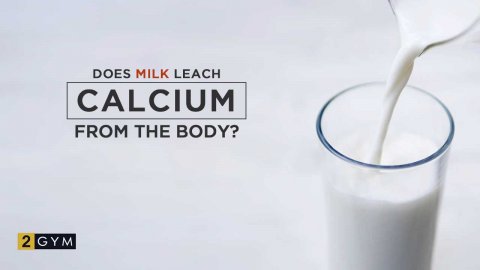
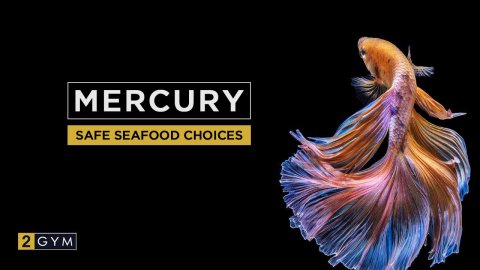
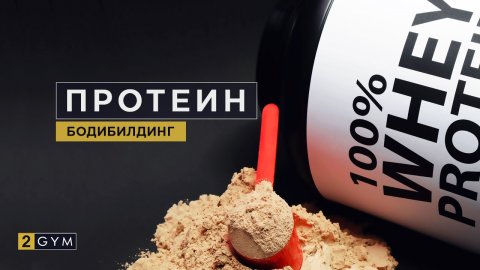

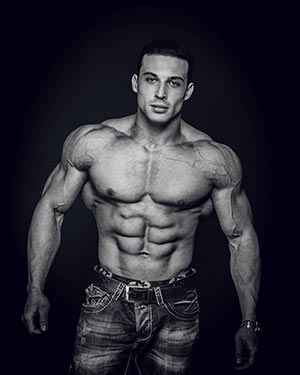
Log in with ( Sign Up ? )
or post as a guest
Be the first to comment.